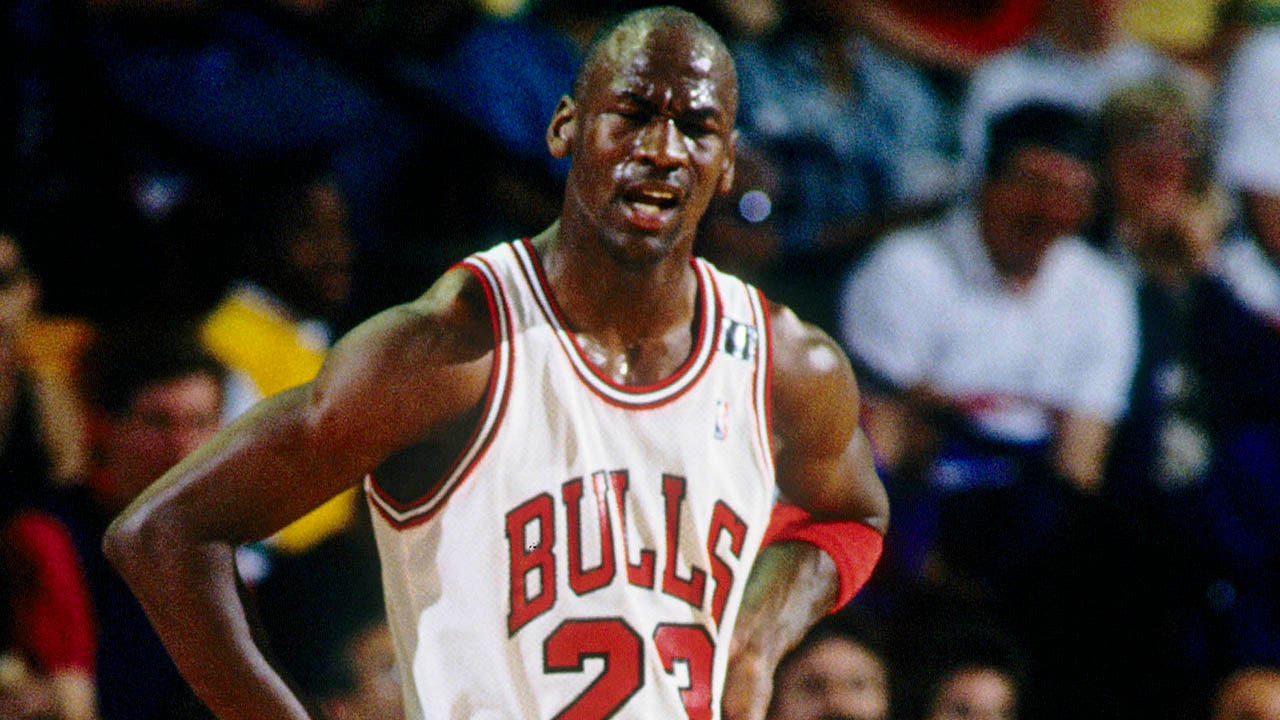NBA legend Michael Jordan recently shared his perspective on the controversial topic of load management in the league, emphasizing the importance of playing through pain and the responsibility players have toward their fans and teammates. His comments came during an interview with NBC’s Mike Tirico as part of the "MJ: Insights to Excellence" series, which airs alongside NBC’s NBA game coverage.
Jordan began by stating that load management — the practice of resting players during games to prevent injury or fatigue — ideally should not be necessary. Reflecting on his own career, he said, "I never wanted to miss a game because it was an opportunity to prove." For Jordan, playing every game was about more than just personal pride; it was about valuing the fans who came to watch him perform. “I wanted to impress that guy way up on top who probably worked his a-- off to get a ticket or get money to buy the ticket,” he explained. This shows how deeply Jordan valued the commitment of fans, even those sitting in the farthest seats, the so-called “nosebleeds.”
He went further, highlighting that he cared about silencing critics in the crowd as much as entertaining supporters. “Yeah because I knew he was probably yelling at me and I wanted to shut him up. He called me all kinds of names, I definitely wanted to shut him up,” Jordan said, illustrating the competitive fire that drove him to always be on the court. For him, being an entertainer was a duty tied to respect for the audience, and he was unwilling to miss games just because he didn’t feel like playing. However, he acknowledged that if he was physically unable to perform, that was a different matter.
Recalling a specific incident early in his career, Jordan shared how he once twisted his ankle but refused to leave the game despite being advised otherwise. This example underscored his belief in showing resilience and determination, as well as his unwillingness to let down his teammates. He emphasized that playing through pain was not only about personal pride but also about commitment to the team.
One of the most iconic moments Jordan referenced was Game 5 of the 1997 NBA Finals against the Utah Jazz, famously known as the "Flu Game." Despite battling severe illness, Jordan was determined to get on the court. He said, “I was going to find a way to get out there – even if I was a decoy. Once I got out there, you never know how, pushing yourself, you never know what happens.” The combination of emotions, the critical nature of the game, and the drive to support his team propelled him to “gut this thing out,” resulting in one of the most memorable performances in NBA history.
On the topic of load management, Jordan provided his own interpretation of what it should mean. He pointed out that NBA players spend 2.5 to 3 hours a day playing basketball, which is essentially their job. “What are you doing the other 21 hours?” he asked rhetorically. According to Jordan, the rest of the time should be dedicated to preparing for the next day’s challenges, suggesting that discipline and preparation off the court are key to maintaining peak performance. While he humbly acknowledged that he might not be the ideal model for everyone, Jordan stressed that load management should be about more than just resting during games; it should be about preserving pride, maintaining sharpness, and keeping the team’s rhythm intact.
He warned that resting players too often could disrupt the synergy of the team, which is crucial for success. This perspective highlights the balance required in managing player health without compromising team dynamics and fan expectations.
In recent years, the NBA has taken steps to address the growing use of load management. The league has introduced contract incentives tied to player performance and availability. For instance, players must participate in at least 65 games to qualify for major honors such as the NBA MVP award or a spot on the All-NBA First Team. These rules aim to discourage players from sitting out games unnecessarily while still promoting health and longevity.
Michael Jordan’s views offer a glimpse into the mindset of one of the greatest players in NBA history, emphasizing toughness, dedication, and respect for the game’s fans. His comments serve as a reminder of the intense commitment required to succeed at the highest level of professional basketball and the delicate balance between managing physical health and fulfilling the responsibilities of being an elite athlete.
As the NBA continues to navigate the challenges of player health and performance, Jordan’s insights contribute

